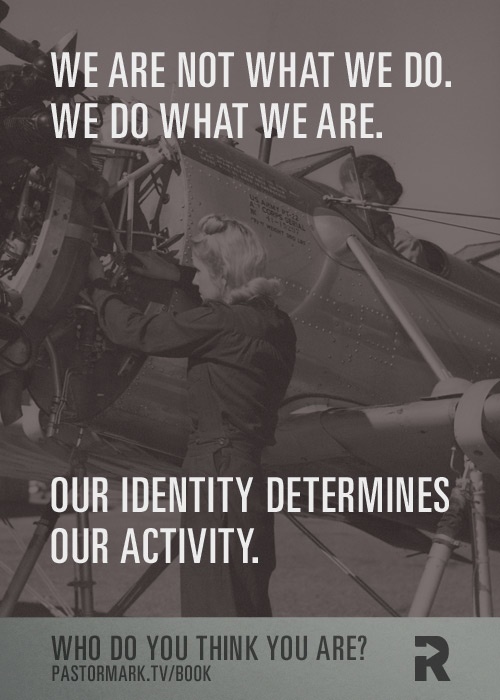Who do you think you are? I’m not asking that in the sense that you usually hear it. Usually this is a rhetorical question we toss out at somebody who is getting WAY out of line. But seriously, who DO you think …
Read More

Who do you think you are? I’m not asking that in the sense that you usually hear it. Usually this is a rhetorical question we toss out at somebody who is getting WAY out of line. But seriously, who DO you think …
Read More
I pray that God, the source of hope, will fill you completely with joy and peace because you trust in him. Then you will overflow with confident hope through the power of the Holy Spirit. (Romans 15:13 NLT) Everyone has up days and …
Read More
Passing alongside the Sea of Galilee, he saw Simon and Andrew the brother of Simon casting a net into the sea, for they were fishermen. And Jesus said to them, “Follow me, and I will make you become fishers of men.” And immediately they left their nets …
Read More
Another troublesome churchy word is “holy.” Like “righteous,” the word “holy” also has some unnecessary baggage attached to it. Just as some people see the word “righteous” and think “self-righteous,” some people see the word “holy” and think “holier-than-thou.” If you’re not familiar with …
Read More
One of the pitfalls of using churchy jargon is the proclivity for misunderstanding by those outside the church. (For more on this topic, check out this post.) One of those commonly misunderstood words is “righteousness.” To be “righteous” is to have “right standing” with …
Read More
No, not THAT kind of Deliverance! (Yeah, that’s more like it.) Have you ever found yourself in a situation that seemed hopeless? Did you pray to God for deliverance? I have found myself in that place on numerous occasions. …
Read More